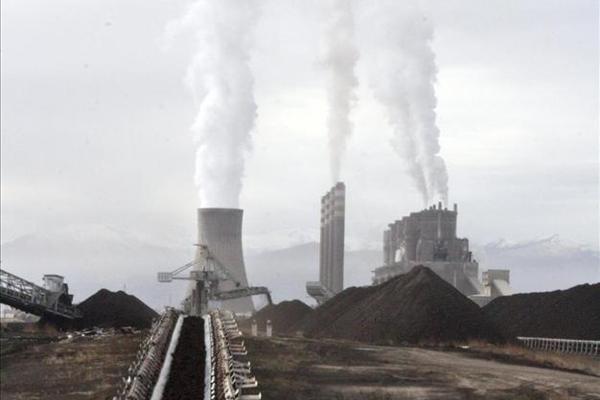Turkish currency tumble raises fears in energy sector
ISTANBUL/KONYA


Turkish Energy Minister Taner Yıldız admitted on Jan. 25 that the graft probe has ramped up the costs in the energy sector and interrupted thermal power plant tenders. CİHAN photo
Turkey is likely to face more struggles to fund its already-mounting energy bill due to the political problems that have emerged with a corruption investigation that has driven Turkish currency to record lows.The country, which is heavily dependent on foreign energy resources that cost up to $60 billion every year, has been grappling with the sliding Turkish Lira against the U.S. dollar since the Federal Reserve’s decision to cut its stimulus program. The weakening currency hit the skids in the wake of a Dec. 17, 2013, corruption and bribery investigation that kindled a massive political crisis at state institutions, falling to a historical low of $2.3 to the dollar.
In a meeting held on Jan. 25, Turkish Energy Minister Taner Yıldız also admitted that the graft probe, which he has been constantly dubbing as “a plot against the government,” has ramped up the costs in the energy sector and interrupted thermal power plant tenders.
“It [corruption operation] has bred results that raised costs in our energy sector,” Yıldız said during an “Energy Efficiency Industry Project” presentation meeting in the Central Anatolian province of Konya.
“Where we are standing now is that the dollar parity is at 2.32, the euro is at around 3.12, the crude oil barrel price is at around $107 and our costs have risen,” he said, adding that “those that caused [the rise] should be called to account.”
“The measurable damage they caused is $127 billion, while there are more [side effects that are] immeasurable,” he said.
The weakening of the lira has led to fears of an energy price hike and funding problems for power generation privatization tenders.
The minister also blamed “those behind the probe” for causing the postponement of the privatization of four thermal power plants.
“The Privatization Administration has launched a tender for the Yatağan, Kemerköy, Yeniköy and Çatalağzı thermal power plants, and 20 companies had acquired the tender file. However, 19 of them said ‘now there are tough winter conditions in politics, I should look into this again in spring’ and asked for two to three months’ break,” Yıldız said.
The administration announced Jan. 20 that it had postponed the tenders scheduled for February to April, after Finance Minister Mehmet Şimşek had also hinted that the investors’ requests may lead to a delay.
The much-anticipated National Lottery privatization planned for Feb. 13 is also expected to be rescheduled for a later time.
“Normally, we get tender offer in all tenders we launch. Who is going to pay for the income that would be earned from here?” he asked.
